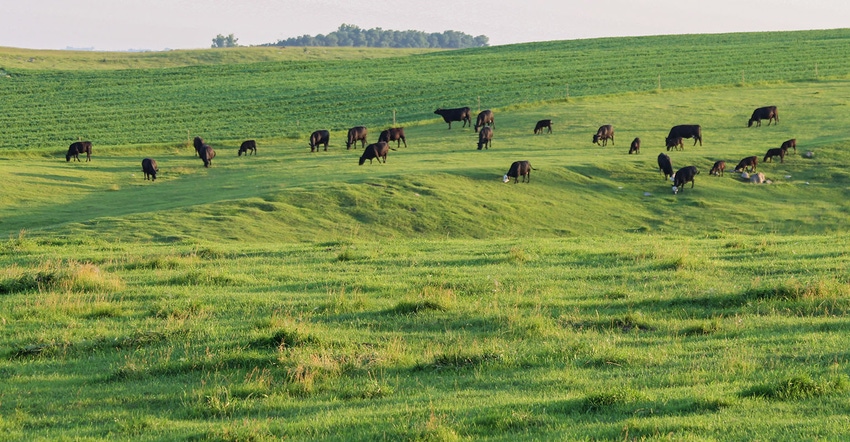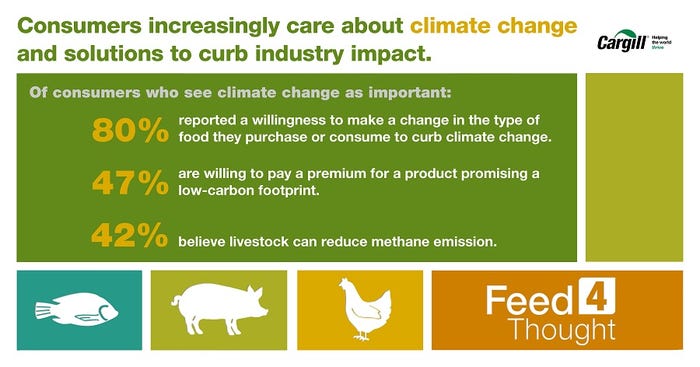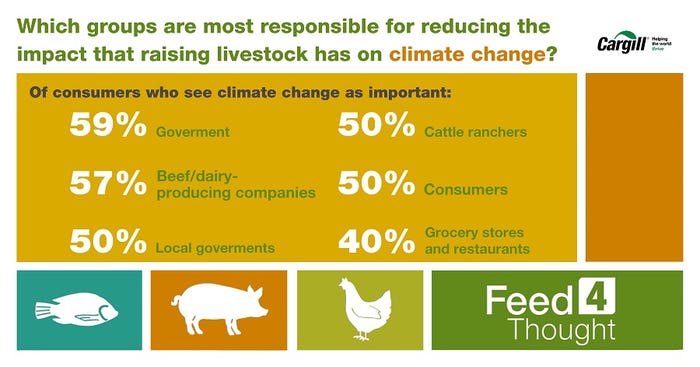April 8, 2021

Cargill's latest Feed4Thought survey finds consumers view agriculture as part of the solution when it comes to climate change. More than one-third of respondents to the January 2021 expressed confidence in the industry's ability to limit its contributions to climate change. Cargill's Feed4Thought survey included responses from 2,510 consumers representing the U.S., France, South Korea and Brazil.
"Sustainability in our food systems starts with the dedication of our farmers," said Heather Tansey, sustainability lead for Cargill's protein and animal nutrition businesses. "Producers around the world are seeking and implementing solutions to mitigate emissions while providing quality care for their animals."
Who's responsible?
Transportation and deforestation were ranked as the greatest contributors to climate change by participants in the quarterly survey. The survey found that nearly 80% of consumers around the world who indicated climate change as important reported a willingness to make a change in the type of food they purchase. In turn, about half of these consumers said they would be willing to pay a premium for a product that promises a low carbon footprint to curb their impact.
Consumers indicated that producers and the government should work together to reduce the environmental impact of livestock production.

What do consumers care about?
The Feed4Thought findings show that, when asked about the most important factors considered at point of purchase, consumers ranked taste, avoidance of antibiotics/growth hormones/steroids use, and knowing where products come from as top considerations.
The survey suggests a need to engage consumers on existing efforts in agriculture to address climate impacts and deepen the conversation surrounding methane emissions and other sustainable practices.
Source: Cargill, which is solely responsible for the information provided and is wholly owned by the source. Informa Business Media and all its subsidiaries are not responsible for any of the content contained in this information asset.
Read more about:
Climate ChangeYou May Also Like




